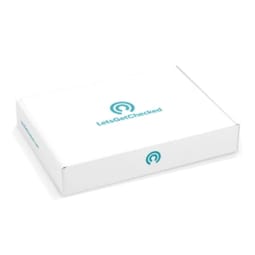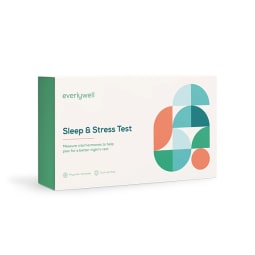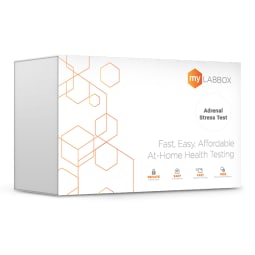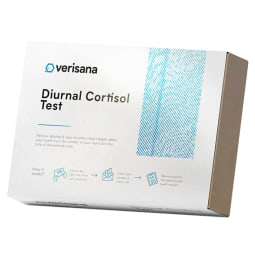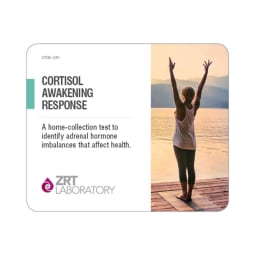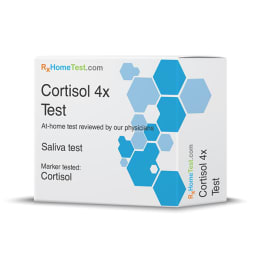To help you take control of your own stress response, we spoke with experts and researched the best at-home cortisol tests available today. Below, find our top picks that are the most accurate, easy to use, and a good value for your money. Cortisol’s primary function is to convert protein into glucose, a form of energy. It does this by breaking down the protein in the liver and muscles, explains Daniel Boyer, M.D., of The Farr Institute. Glucocorticoid receptors are present in almost all tissues in the body. Because of this, cortisol is able to affect nearly every organ system: nervous, immune, cardiovascular, respiratory, reproductive, musculoskeletal, and integumentary. This essential hormone regulates blood pressure, heart rate, energy levels, and metabolism. It’s released by our adrenal glands after stimulation by various stressors including physical illness, psychological distress and mental illness, and even lack of sleep. Cortisol levels that are too high or too low can cause unpleasant symptoms throughout the body. If you’re feeling hyperactive, it may mean that your stress levels are affecting your brain function. Additionally, if you have a history of heart disease or suffer from chronic pain, you should check to see if your cortisol levels are normal. Boyer adds that if you have been feeling stressed out, are having difficulty sleeping, or are experiencing lower energy than usual, you should test your cortisol levels. Normal cortisol levels are based on the time of day. Cortisol levels peak in the early morning and gradually decrease throughout the day, reaching their lowest point in the middle of the night. Because of this, when high cortisol levels or Cushing syndrome are suspected, cortisol levels are usually measured at night. If low cortisol levels or Addison’s disease are suspected, cortisol levels are often measured early in the morning, as that is when cortisol levels should be naturally high. Everyone’s baseline cortisol levels are different, but Cleveland Clinic defines normal cortisol levels as: Blood test: Taken first thing in the morning prior to eating or drinking, this will give you the most accurate but limited cortisol result when it should be at its highest. Urinary free cortisol (UFC) test: Measures how your body is producing cortisol levels multiple times throughout the day. Saliva sample: This noninvasive collection method provides detailed results of cortisol levels throughout the day. The best testing method depends on your individual preferences. If you are looking for a less invasive method, choose the saliva or urine samples. However, for the most accurate results, a blood test is best—although it does not provide insight into how your body produces cortisol throughout the day. LetsGetChecked uses CLIA-certified labs, so you’ll get the same level of accuracy as you would with a traditional doctor-ordered lab test. It’s recommended that you refrain from vigorous physical exercise the day before testing your cortisol levels. If your results are abnormal, you will get a call from a nurse who will walk you through an explanation. While this is a great perk, we still suggest discussing your results with your doctor as well. Keep in mind, the brand clearly states that users cannot test cortisol levels while taking an antibiotic medication. In addition, the instructions ask that you refrain from taking a biotin supplement within 3 days, for the most accurate results. Verisana does not offer any individualized recommendations for treatment if your results are abnormal, so you will need to discuss them further with your healthcare provider. If you are diabetic, ZRT clearly states that you will need to discuss the testing method with your healthcare provider first. This will be the case with all saliva tests, as they are meant to be performed on an empty stomach, and diabetics typically need to eat upon awakening. Another callout is that consumers in California will need to go through a different process for ordering any at-home testing kit, due to state regulations. RX Home Test does not offer any type of follow-up consultation, so you will need to discuss any abnormal results with your healthcare provider.










